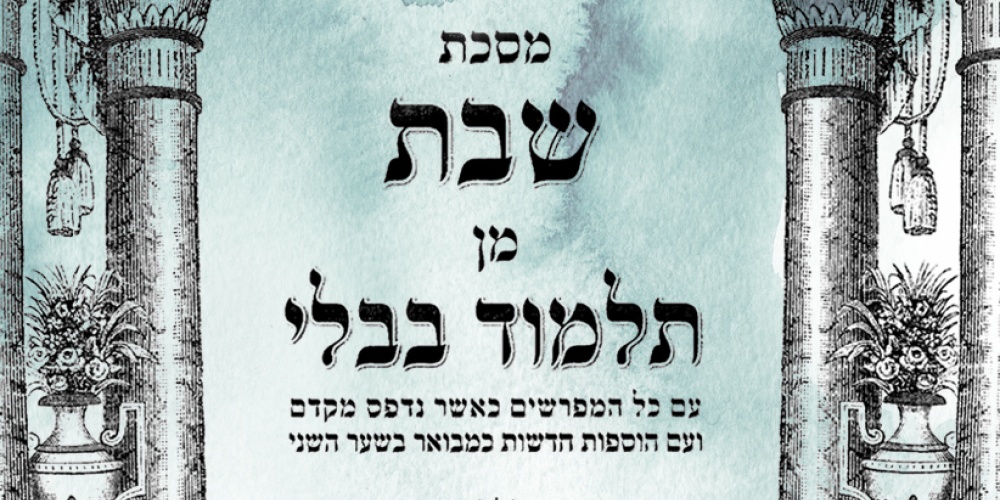
The Talmud quotes some 316 debates between Beit Hillel and Beit Shammai. “Since both these and those are the words of the living God”, the Talmud (Eiruvin 13b) asks, “why was the law established in accordance with Beit Hillel?” The answer of the Talmud is not because they were smarter—the Talmud actually says the students of Shammai were sharper—but rather, it was because “they were agreeable and forbearing, they would teach both their own statements and the statements of Beit Shammai. Moreover, they stated the views of Beit Shammai before their own statements”.
One may be tempted to argue that the views of Beit Shammai are slightly more correct, but when viewing the picture in totality, our tradition preferred to adopt “the humility of Hillel and not the harshness of Shammai”[1] (Shabbat 30b). And that may be true. Yet our Sages understood that those who are more humble, who think about and entertain dissenting views, are less likely to make errors. Knowledge is not the only criteria for establishing the correct procedures. It is noteworthy that on at least three occasions, the Talmud notes that Beit Hillel, upon hearing the arguments of Beit Shammai, changed their views to be in accordance with Beit Shammai (Mishna, Eduyot 1:12-14). Never do we find Beit Shammai changing their views to those of Beit Hillel. Beit Shammai may have had more talent, but talent alone is never enough.
While we, halacha lemaseh, in practice, follow the view of Beit Hillel, the Tosafists (Sukkah 3a) quote from the siddur of Rav Amram Gaon[2] that there are six cases—three related to the laws of tzitzit, two relating to brachot and one relating to a Sukkah—where we follow the view of Beit Shammai.
Fascinatingly, it is the case of Sukkah—where one is eating in a Sukkah, but one's table is in his home—that is the example brought by the Gemara to demonstrate that Beit Hillel first quotes Beit Shammai, and thus we establish the law in accord with Beit Hillel. This, despite the fact that in this particular case, we follow the view of Beit Shammai that one has not fulfilled the mitzvah of eating in a Sukkah.
However, these six cases are not the only time we follow the view of Beit Shammai. In what is one of saddest, yet largely unknown, events in Jewish history, “they counted, and Beit Shammai outnumbered Beit Hillel, and 18 ordinances were passed on that day[3]” (Shabbat 13b). Reading the Mishna, one gets the impression that there was some discussion and debate, a vote was taken, and with the students of Shammai in the majority, their view carried the day[4].
Yet as the Gemara alludes to, and the Talmud Yerushalmi spells out in greater tragic detail, this was no ordinary debate and no ordinary vote. Only regarding one of these 18 ordinances is there any mention of discussion and debate. Hillel, quite innocently, asked Shammai why he ruled that juice that emanates from grapes being transported to a wine press causes impurity, whereas similar liquid from olives do not[5].
For unexplained reasons, Shammai did not take kindly to the question. “He said to him: ‘If you provoke me, I will decree impurity on the gathering of olives as well’. A sword was stuck in the study hall, and they said: ‘Let the enterer enter, yet the one who [seeks to] leave may not leave’. That day, Hillel sat submissively before Shammai like one of the students. And it was grievous to Israel as the day the [Golden] Calf was made!” (Shabbat 17a).
Hillel, filled with humility, quietly and with great dignity accepted the disgraceful conduct, in keeping with the rabbinic maxim that those who “are insulted and do not insult, who hear their shame and do not respond, who act out of love and are joyful in suffering, the verse (Shoftim 5:31) says: ‘And they that love Him are as the sun going forth in its might’” (Shabbat 88b). Hillel’s humility and his desire to never fight led him to join with Shammai in promulgating the law that liquid from grapes cause impurity. The Gemara notes that this ruling was not accepted by the people. Presumably, the people did not want to accept a law enacted in such a fashion, and it was only accepted when re-introduced by their students.
This is a sad story. But to compare it to the sin of the golden calf seems a bit much. Yet, our Sages equated humiliation of man with that of G-d. Every mitzvah between man and G-d has a corollary mitzvah between man and man. Fasting on Yom Kippur must sensitize us to the importance of tzedakah; eating matzah on Pesach requires that we be most sensitive to the stranger. And worship of G-d means we must treat those created in His image as G-d’s partner.
But there is another, much more troubling, connection to the golden calf. That sin caused brother to take up arms against brother and when it was over, 3,000 Jews lay dead. The reference to this horrible sin is an allusion to a parallel passage in the Jerusalem Talmud where we read that, “The students of Beit Shammai stood on the bottom and killed the students of Beit Hillel.”
Whether this account is an exaggeration, as some have argued, or is meant literally, as many others have argued, almost doesn’t matter. One could even argue that the critique of the Talmud is more severe if the story is meant allegorically. Our Sages are warning that when great people are belittled, threats are made and laws passed improperly, this is emotional and psychological murder—and may lead to actual murder.
In one of the most neglected chapters of the Shulchan Aruch (Orach Chaim 580), Rav Yosef Karo lists a series of some 21 days that one should fast (beyond the six fast days we already have) to commemorate sad events in Jewish history. The last day mentioned is the 9th of Adar, the day on which “Beit Hillel and Beit Shammai argued”.
The line between a debate for the sake of heaven and one that is not can be a fine one, indeed. And one crosses that line is at great, great peril. There is no debate more dangerous than when the protagonists are convinced that they, and only they, are carrying out the will of G-d.
May we be blessed to follow in the path of Hillel in all that we do.
[1] I would argue that Shammai was well aware of his own impatience and gruffness, which is why he taught that “One should always greet people b’sever panim yafot, with a good countenance”.
[2] This was no ordinary siddur. It is the first complete siddur in Jewish history, a book that dates from “only” the 9th century.
[3] Most relate to strictures in the laws of purity, though two very relevant ordinances were the prohibition of gentile bread and wine—both established as a safeguard against intermarriage.
[4] As the mishnayot in masechet Sanhedrin make clear, Jewish courts work on majority vote. The decision to follow the ruling of Beit Hillel—or Rava as opposed to Abaye and a host of other such rulings—were established later, as Jewish law further developed.
[5] Jewish law states that food can only become impure upon first coming in contact with one of seven liquids—wine, blood, olive oil, milk, dew, date honey and water—and then being handled by one who is impure, i.e., attended a funeral. If, however, one does not want the liquid, i.e., it oozes out and goes to waste before it is brought to the olive press, it does not create impurity. Shammai ruled that in the case of grapes, even this unwanted liquid could cause impurity, and Hillel wanted to know why this would be so in the case of grapes, but not olives.



